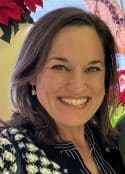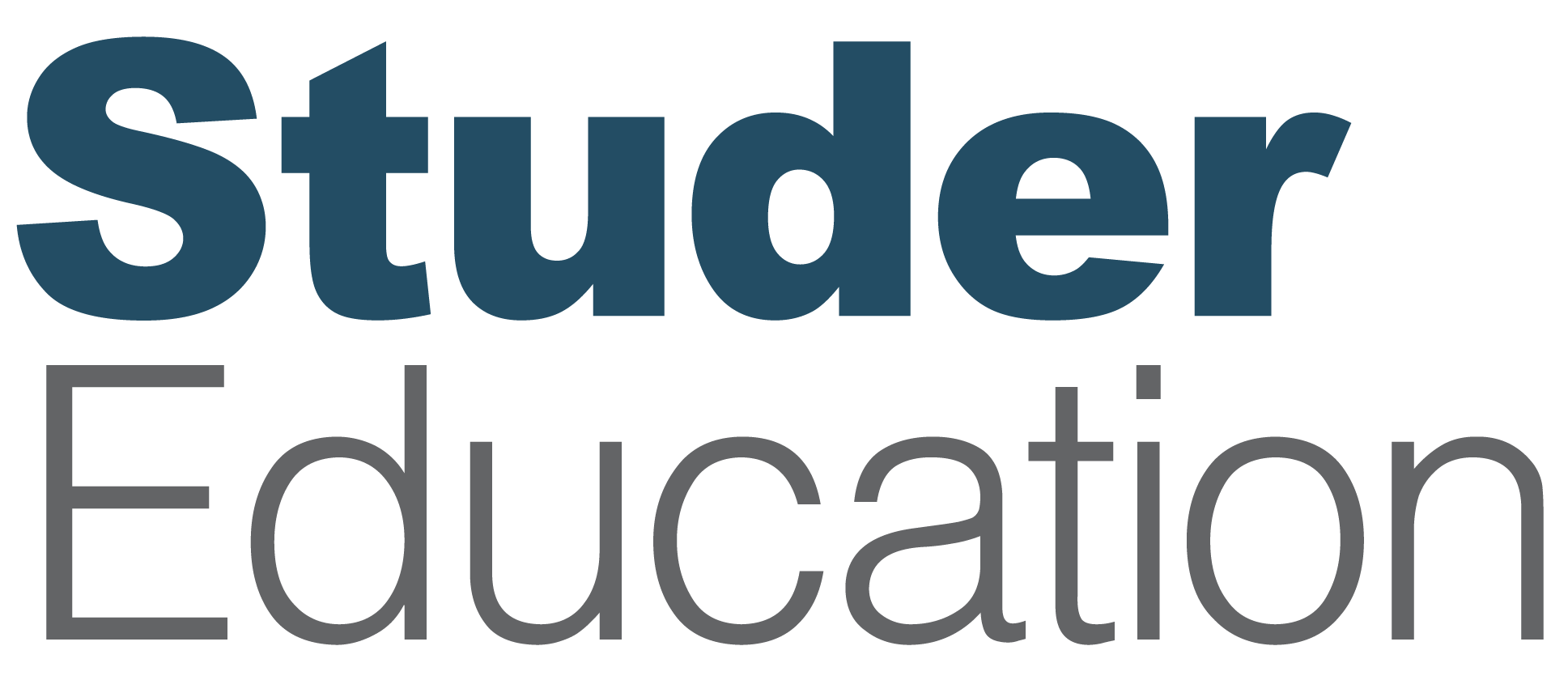
Behind every educator is a driving purpose. For Jill Robinson-Wolgamott, Director of Teaching and Learning for K-5 in Bethel School District, that “why” is a powerful story of overcoming obstacles and dedicating her career to literacy education. Join host Dr. Janet Pilcher as Jill shares her inspiring journey, prompting us to reflect on our own driving purpose. You’ll also learn how Bethel is achieving impressive literacy results and creating a strong culture of collective responsibility.
This episode addresses questions such as:
- How do strategic tools drive widespread instructional improvement, specifically in literacy education?
- What impact does rounding have in fostering a culture of connection, trust, and gratitude?
- What’s the essential fuel that drives and sustains all meaningful change?
Recommended Resources
Latest Episodes
Jill Robinson-Wolgamott: My “why” is really rooted in both a personal experience and then also just a profound belief in the power of literacy.
[Intro music plays in the background.]
Introduction
Janet Pilcher: Hello everyone, welcome to the Accelerate Your Performance podcast. I’m your host, Dr. Janet Pilcher, founder and president of Studer Education. June is here, and for most of us, that means the school year is winding down. But we know our work is far from over. The summer months, often seem to those outside education as a break, are a crucial time for us. And if you’re anything like me, you’re probably spending some time reflecting on the past year to identify areas of growth and celebrate successes. You’re also probably taking time to review feedback and make plans for the upcoming year.
In the midst of all that, I’d like to invite you to do one more very important thing, maybe the most important thing you’ll do at work today: remember why you became an educator. As you listen to our guest story today, I encourage you to remember where it all started. What was the spark that led you on this path to becoming the leader you are today? Why did you decide to spend your life dedicated to educating students, young people?
My guest today is well-rooted with her “why.” Jill Robinson-Wolgamott, Director of Teaching and Learning for K-5 in Bethel School District, is here to talk about what drives her both personally and professionally. Jill spent her entire education career in the Bethel School District, and before her current role, she served as both principal and teacher. Under her leadership, the district has successfully navigated significant projects such as curriculum adoptions and summer reading programs.
As you listen today, I know you’ll hear Jill’s passion for educating students and developing teachers, and when you hear her “why,” my hope is that it will remind you of yours.
Interview
Janet Pilcher: It’s with great pleasure that I welcome Jill to our show today. Jill, welcome.
Jill Robinson-Wolgamott: Thank you. It’s so great to be here, Janet.
Janet Pilcher: Yeah, I’ve been looking forward to this Jill. Kathy said a lot about you, managed you up in many ways. So I’m looking forward to this conversation. She recommended that we have this connection. So thank you for being here.
Jill Robinson-Wolgamott: Absolutely. We love Kathy. Oh yeah. We love her.
Janet Pilcher: [laughs] She is so good, Jill. I mean, she is, I do too. I just enjoy the opportunities I get to work with her. And she’s so easy to work with and so good and keeps us all focused in on tasks. So appreciate you saying that. She’s a great coach.
Jill Robinson-Wolgamott: Yes, she is.
Janet Pilcher: So before we jump in, we’re going to talk about how on how you do certain things. But I’d like to start as we do many times with the why. And Kathy, that we were talking about, your coach, shared a little bit about your personal story with me. So can you tell me about your passion for literacy and reading education? What led you here both professionally and personally?
Jill Robinson-Wolgamott: Absolutely. I actually just recently shared my “why” widely with the people that I work with here in Bethel School District. And it was after I did it, I thought to myself, “why did it take me so long to do this? Why didn’t I share my ‘why’ a long time ago?” And I think that people will sort of understand as I get through a bit of this, of why it is hard to share a story of being a struggling reader yourself and also having people that are very close to you being a struggling reader.
So my “why” is really rooted in both a personal experience and then also just a profound belief in the power of literacy. Growing up, I witnessed the struggles my father faced as a non-reader, a reality that deeply impacted his life. And of course, by extension, it affected mine and also our entire family.
His inability to read was more than just an educational barrier, I guess. It really cast this heavy shadow over our household. And without getting deep into that, that caused trauma, which really affected all of us. And for many years, we just carried that pain in silence because that’s something that is not really widely shared in our culture to really talk about people in your family who don’t know how to read.
His story isn’t the only one that shaped me. I too am a struggling reader. I struggled with reading my entire life. And into this day, I continue to face challenges, and it does create barriers in how I learn and how I communicate. But through the years, I’ve really learned strategies that helped me.
So as a child growing up in this very teeny, tiny town, my identity was really wrapped into sports, not academics. And so I was known as this next upcoming star, this person who was gonna be college \-bound, who was an exceptional athlete, especially in the sport of softball. And so even though that part looked really shiny on the outside, on the inside, I was just very much struggling academically. I struggled in elementary school. I struggled in middle school. But by high school, I was no longer really being challenged. I was just being propped up as this amazing athlete. And really my academic needs weren’t met.
So I eventually earned this full ride scholarship to the University of Oregon to play softball. And so my dreams came true. My dreams came true. I was a collegiate D1 athlete. But once I got there, reality hit me really hard. And I was not prepared. I was lost. I was struggling to keep up. And I was terrified to lose my scholarship because I couldn’t maintain passing grades.
And so by the end of my freshman year, I had a cumulative GPA of 1.75. So when I talk about the importance of literacy, it’s not just theoretical. It’s, I know firsthand, I know what it means to grow up in household where reading wasn’t accessible. I know what it’s like to live through and move through a system without the skills needed to really excel. And so that’s really what drives me. That drives me in every single thing that I do in our school district. It drives me in my interactions with students and families and principals and staff. And it drives me in the work that I’m creating or that I’m trying to create with teams here in Bethel.
Janet Pilcher: So with your story then, you had to persevere to get where you are today, right? And it fueled, I’m sure, your passion for what you do today. You know, so like as you are here, focused on your daily work, still having that passion and your long-term vision for literacy education in Bethel, what does that mean? What is that?
Jill Robinson-Wolgamott: Yeah, that’s a really important question. I just, I feel that when we commit to following the science, when we employ evidence-based instruction, when we’re consistently looking at data and adjusting our teaching, we really move beyond teaching reading. We build this foundation for lifelong, I guess, success. I think that ensuring every student becomes a proficient reader means that we’ve created this reality for them where they can open actually any door of opportunity that they choose in life.
And so I guess that’s the kind of impact that changes lives and breaks cycles. I really believe that that is equity in action. I think student success is not just an individual goal. It has to be this collective responsibility. And I believe every child deserves that chance. And so in my work, when I say “collective responsibility,” how do I, as a director in the Bethel School District, how do I help all levels in our system work collectively to help our students become proficient readers?
Janet Pilcher: Yeah, so good. So just a side note, did somebody help you? I mean, as you were thinking about, like how did you get from, “I’m a great athlete, I’m not doing well in college,” but you’re successful in terms of what you’re doing now. Did somebody take owner, help you there? I mean, because it’s such a, I think about what your story of, you’re a great athlete and put you in a position to be a great athlete, but you didn’t have the foundational skills at that point, to be successful at the beginning. I mean, did you get the help that you needed, Jill?
Jill Robinson-Wolgamott: Yeah, I mean, I’m really lucky being a collegiate athlete at the University of Oregon meant that I had tutoring available to me every day, Monday through Friday, and tutoring went from eight o’clock in the morning until late in the evening. And so after my freshman year, I really had to buckle down and be vulnerable and ask for help. And so I spent most of my days when I wasn’t in class or I wasn’t at practice, I was in our tutoring center. And that’s what really helped me.
And then just on my own, just going back over and over, and over, people who are watching this, who have struggled reading, they know exactly what I’m talking about, but going back through what you’ve just read, making notes, making sure that you understand. And then, not to mention the whole writing aspect, when you’re a struggling reader, most of the time you’re also a struggling writer. So just really taking that ownership and trying to figure that out on my own, that’s something that also fuels me. I don’t want any student to have to figure out how to do that, because it was so painful and so hard.
And yeah, luckily, I say, by the grace of God, I was able to do this. And from that moment on, I think it was my grades were, they vastly changed. I no longer would receive Ds and Fs. I was receiving slowly Bs and Cs. And then as I approached my junior and senior year, I was looking at A’s and Bs. And so it was a lot of hard work.
Janet Pilcher: Well, I just, I wanted you, that had to be the part of the story to get you where you are today. So, and I know it was true dedication on your part, which plays into why you’re such a great educator today.
So let’s talk about today and what you’re focused on. So you all are continuing to implement the science of reading. You have some early promising data. In fact, what we hear is two thirds of first graders are now meeting grade level reading requirements compared to less than half the previous year. So how is the K5 Literacy Coach scorecard and what you’re doing there, helping drive those outcomes?
Jill Robinson-Wolgamott: Yeah, absolutely. I think, yes, the literacy coach scorecard, but just the scorecards in general, I think that that has been this really wonderful shift in our district. And so it’s that waterfall effect that you talk a lot about.
Our literacy coach scorecards. We have literacy coaches in all of our elementaries. And so what we did is we looked at, of course, we have our district scorecard and then building principals have their scorecard. Our coaching team, because they support all elementaries, we looked at building level scorecards. And from there, we looked at the action items that principals have identified and we said, “what can we do now as a literacy team to enhance and support all of those action items that principals have identified?”
And so it really has been instrumental in focusing our efforts and aligning our supports where they’re needed. The scorecard, it really clearly outlines those expectations for how coaches are partnering not only with teachers, but with administrators through, if it’s co-planning or modeling instruction or analyzing data together to support that implementation of high leverage strategies.
I just want to just say to your audience, the scorecard is not just a checklist for us. It’s, it’s really the shared roadmap, right, that helps our coaching team, the team that I oversee, and our principals really stay focused on those instructional moves that they have identified that matter the most.
And as a result, we are seeing stronger tier one instruction, more targeted small group work. And of course, like we’re seeing an increased teacher confidence, which is so fun to see. Primary reading data? Yep, there is especially that jump in primary reading proficiency. And I think it shows, that shows what’s possible when we have clear goals, consistent support, and like that commitment to doing the work together that again, that scorecard really keeps us aligned helps us be reflective and responsive, which I think is helping continue building this momentum of literacy gains that we’re seeing in our school district.
Janet Pilcher: Yeah, I love that and I love, I love how you talk about it being kind of that roadmap. It’s so interesting, Jill, because when we talk about scorecard, it’s not just tracking data, but it’s using that scorecard to engage in the right conversations about what we need to do to act in order to improve, right.
Jill Robinson-Wolgamott: That’s right.
Janet Pilcher: That’s the value add of that scorecard process. How great for you all to implement it that way. And I love what you said about, in our flywheel, when you get the results, your flywheel will start spinning faster because people like positive results, but you have the, the alignment and the tightness for people to understand what to do in order to achieve those results.
So it’s a lot like, I mean I was, I was a athlete as well, and I coached tennis when I taught high school. So it’s a lot to me like sports, right? I mean you have to your, you really have to tighten what you’re focusing on to get better at something and really, you know, build that alignment within ourselves and within our team, as we’re focused on getting those outcomes.
Jill Robinson-Wolgamott: Yeah, that’s exactly right. And the momentum, I mean, I love that word because we have this amazing momentum that’s in Bethel right now. And again, we were attributing that to these very clear goals, the support that we’re providing and then, you know, that alignment and then again this commitment that we do our best work when we do it together. That is a quote from one of my favorite people, Jennifer Haleske, and I would say that to everybody as I was a building principal: “We do our best work when we do it together,” and I think the scorecard really exemplifies that.
Janet Pilcher: Yeah.
Jill Robinson-Wolgamott: It’s not in isolation. This is a collective.
Janet Pilcher: Yeah, I love that. Yeah, absolutely. So let’s talk a little bit more about people. One of the other tactics that we find work so so well is rounding. So you’ve spent time rounding with your staff. How have you seen that practice influence your district’s culture, particularly when it comes to gratitude and recognition?
Jill Robinson-Wolgamott: Yes. Oh my gosh, it’s, it’s weird now when we when we don’t round or when we don’t do a plus delta. It’s, people look at us now and they go, “well, you’re missing something.” So, rounding has really been this powerful way for us to build this connection and, and also trust across our system. It’s again, it’s more than just checking in. Something that we are working to hardwire is really listening deeply to those that are impacted by our decisions, and so rounding is an example of that where it’s about us truly listening to what staff are experiencing, what’s working, what they need. Maybe what’s not working, and then I just think one of the biggest shifts that we’ve seen is this deeper culture of gratitude. Right?
So I think when people know that they’re being listened to, they feel grateful. And when we ask in rounding, “Who is someone you’d like to recognize?” or “Who is someone that has helped you in this area?” it just creates this space for staff to like lift each other up. And so when I’m doing rounding with people and they start to give me names of people who have really helped them, and then I do, I reinforce it with some kind of handwritten card or I send an email or I give them a call. I just think it reinforces that their voice matters, right? So over this past year with, this has been, this recognition that we have started, I think it’s really starting to shape the way that people show up. I think staff feel more seen, they feel more valued, they feel more connected to one another. And it feels good. Janet, it just feels good.
Janet Pilcher: [laughs] It does. Yeah. And we under, sometimes we underestimate the value of those small things that makes such a big difference, Jill.
Jill Robinson-Wolgamott: Yeah.
Janet Pilcher: I mean you all are doing that. And then, take your rounding a little bit, a little bit more. You end the sessions with your three to one and your plus delta. Talk a little bit about those things and what surface is there.
Jill Robinson-Wolgamott: Yeah, definitely. It was really great. We had a, I’ll just give you a specific example. We had our district service survey that went out to all department heads and also administrators and mine was of course the instructional department. And so we we gathered as a team. We looked at what the data was telling us. Kathy helped us structure these like, conversations where administrators would come in and they’d give us feedback. They would identify celebrations that they felt within our instructional department. They gave us feedback on opportunities for us to grow. And then of course, out of those conversations there were some action steps.
What surfaced, I guess it was eye opening. I don’t know. It sort of crushed my ego a little bit because I thought I was doing a really great job with communication, but with communication there’s really no finish line. And so what they talked about was they appreciated our responsiveness and dedication, and they also revealed that we need to be more proactive in our communication and clarity around decision making. The “aha moment,” which is really not an “aha,” but I know this because I’ve been a building principal. But what we talked about was when we can be more intentional in how we communicate our work and involve our principals and administrators earlier in that process. It helps them move the work in their building or their department because they feel more confident. They understand, they understand that better. And so that was just something that Dan and I, he’s, he’s the other Director of Teaching and Learning that we took away from that that we’re really working on and–
Jill Robinson-Wolgamott: We’re hoping to get better about getting better.
Janet Pilcher: Yeah. And you know that’s the, you know, when people, that’s where feedback is that gift because when when you get the feedback and you, and you go underneath it and really understand it and you get input from what you’re receiving, then you’re not guessing. You’re like, “it could be the, you know, when you look at it could be this, it could be this, it could be this. I find when I do that I’m usually not right. If I ask somebody and they tell me I’m like, “Oh, I didn’t know that. I didn’t think of it like that. But yeah, we can, we can change our practices if that’s meaningful to you and I see that now you know that in that change.”
So I mean, you’re just kind of a natural at this, and you know, I know people appreciate what you’re doing to really gather that input and to build that place where people are motivated and energized and want to be connected, Jill, so you know just the good work there that you’re doing. Appreciate you. Appreciate what you’re doing because it’s–
Jill Robinson-Wolgamott: Yeah, thank you.
Janet Pilcher: It seems so sometime when we talk about it’s like, “yeah, that just seems so easy,” but it’s really not that easy because it takes a lot of intentional effort and a change in the way we do things every day.
Jill Robinson-Wolgamott: Right, and if we’re not intentional and actually getting this, this data, this feedback from folks, you know, we’re all working so hard, we can just keep going down that same, that same road, where maybe we aren’t being as clear as we need to be. So again, this plus delta, the, the rounding, and then coming up with doing a three two one summary, that system forces the, it forces those deeper conversations to make us better.
Janet Pilcher: You got it. You got it. So, so good. Well as we close today, leading literacy work at scale comes from a lot of insights and lessons, so if you could share one or two key lessons you’ve learned, especially ones you’d like to pass along to others, what what would they be?
Jill Robinson-Wolgamott: Yes. So this is your four of me in this role as a Director of Teaching and Learning, and so I guess one of the biggest lessons that I’ve learned is, again, if you go back to my “why,” you can see me. I can have these blinders on because I’m so focused. How are we going to get kids to read, right? And so one of the things I’ve learned, and I learned it after my first year in this role is, clarity and alignment and communication are really essential. You cannot just make decisions and tell people what to do without the “why,” without the “what,” and with really without the “how.”
So with, with, without those, even, like, the best strategies can get lost in translation. And so we’ve learned to, I’ve learned to be very intentional about aligning our pedagogy, aligning our materials, aligning our instructional strategies, aligning our professional development, and coaching so that everything points, or as many things as I possibly can, will point in the same direction and feel connected to the bigger picture which is ultimately all students reading proficiently.
Another key lesson is that relationships fuel this work. So, I don’t know who said this. I think this is some, someone had this quote and it’s genius: But “change moves at the speed of trust.” And so building strong ongoing partnerships with, with everyone: principals, coaches, licensed staff, classified staff, and everyone else, has been just as important as the curriculum and the training that we’ve provided in reading. So again, just listening deeply, adjusting based on that feedback, celebrating, celebrating, celebrating all this progress to help continue to strengthen those relationships. It’s, it’s really important and, and because of you and because of Kathy and Bethel, we are paying ridiculous attention to our people. So those are the two those are two big lessons for, for your listeners to possibly take away.
Janet Pilcher: Such a great summary of the work, Jill, and if we could just clone you then that would be that would be so nice. I’m telling you, you’re just, the, you know, there are two things that you do. One is you’re a student of the work, and you apply the strategies and tactics, and you do that in a way that works with alignment and with people, right? And I mean, and it’s looking at at how you build good relationships with people and how you’re doing that to help students succeed. There’s no question that each and every day that you wake up wanting to do the best for the people that you lead.
You know, because you know if you do that and the people that you serve that you’re going to do the best for students, and I think that’s really at the bottom line of what we’re trying to do, even if we’re not touching a student personally within a classroom. Everything that we do at that leadership level or facilitator level still makes this great of an impact, and you are making that impact by what you do and the application of the work here, so I am I am deeply grateful to you.
Jill Robinson-Wolgamott: We’re really grateful for you all and and this is just the beginning for us and so we’re excited to continue in this work and, like you said, we’re excited to get better about getting better.
Janet Pilcher: Absolutely. Well thank you so much for being on the show today. Appreciate you and hope that you all continue to show the great progress that you’re showing and good for you for living out your passion.
Jill Robinson-Wolgamott: Thanks, Janet.
Conclusion
[Outro music plays in the background.]
Janet Pilcher: Jill believes that a student who can read proficiently is empowered to open any door of opportunity they choose in life, and she knows firsthand the power of literacy. Thank you, Jill, for sharing your story with us. It’s incredible to hear you reflect on where you’ve been and how it shaped you to get where you are today. You’re truly making a difference in Bethel, and I’m grateful to you for your dedication to your students.
As we go into the summer season, let’s all take a few minutes to reflect on why we do what we do, and let’s hold that close as we continue to implement the organizational excellence framework.
I’d like you to hear more from Jill, so please visit our episode webpage. That’s where you can learn more about the research and data-driven approach Jill and her colleagues are using to drive literacy in Bethel. I’ll leave that in the show notes.
As always, thank you for tuning into this episode of the Accelerate Your Performance podcast. I look forward to seeing you next time as we continue to work together to achieve organizational excellence. Have a great week, everyone.
Featured Guest

Jill Robinson-Wolgamott
Director of Teaching and Learning for Elementary • Bethel School District, OR
-
Janet Pilcher President








